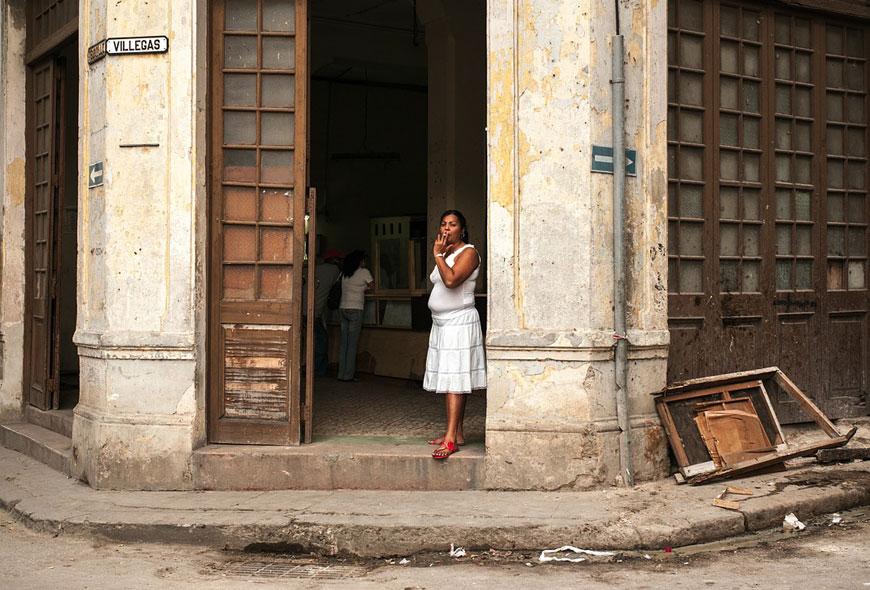Since Barack Obama took office, the subject of lifting the Cuban embargo has resurfaced sporadically in American headlines. In December of 2014, after 18 months of secret negotiations, the Obama administration opened the doors for more fluid communication with Cuba. In the President’s official statement, Obama stated “…these fifty years have shown that isolation has not worked. It’s time for a new approach.”
While that course of action is a choice that Congress must choose whether or not to make, Obama has stated that the removal is “inevitable”. In February of 2016, Cuba’s trade minister echoed Obama’s desire to lift the embargo. Historically, the government of the island nation has blamed it for their current economic situation.
Left waiting for the next development in US/Cuban relations, the American public is split on the issue. Eager consumers look forward to the availability of coveted goods like Cuban cigars. Some argue that “contagious capitalism” can justify removing the blockade. Opponents argue that doing so would be a form of silent consent in regards to Cuba’s human rights violations.
Until further developments, the question of when US/Cuban relations will finally improve is left unanswered. However, a more pressing concern is the potential impact of lifting the embargo on the Cuban people.
Human Rights
The ramifications of lifting the ban on the lives of Cuban people who remain under communist rule are commonly ignored.
It is no question that Cuba needs change; the extent of human rights violations is severe. Critics and dissidents in Cuba are routinely beaten, arrested, detained, and fired from their jobs. While long-term sentences are rarer than they were a decade ago, short-term detainments have risen exponentially. Opposition in any form is ruthlessly repressed.
Compounding this lack of liberty, the media is strictly controlled by the government. Citizens are not allowed to broadcast media in any format. Internet access is limited, but even web access gives little freedom to those who have it; free speech is only allowed if journalists “conform to the aims of a socialist society”. The government wields vague laws like a truncheon to silence all anti-establishment rhetoric.
As Obama noted, the decades-old interdiction thus far has not drastically changed the Cuban government’s stance on these issues. Could more open relations between the two countries influence the Cuban government to adopt more progressive policies in regards to human rights? With the Castro regime firmly in place, it seems unlikely.
Supporters of an open US/Cuban trade agreement assert that “contagious capitalism” will improve the situation — despite the fact that trade with other countries has had no such effect. Regardless of the populace’s feelings, it is up to the government to enact change. The authoritarian regime does not allow for free discourse. Without discourse, there can be no progress.
Economic Concerns
Economic change is also needed. While the Cuban government limits the dissemination of detailed information about their economy, statistics that are readily available do not paint a pretty picture. The government reports their aggregated gross national income per capita as $5,539, but most Cubans only earn around twenty dollars a month. Government statistics tend to be questionable, but this discrepancy also indicates a very small middle class.
Welfare for the lower class is insufficient. There is a wide divide between the images of Cuba seen in mainstream media and the actual lives of the population. Photographs of the living conditions of those in poverty in the country contrast starkly against idyllic photos provided by tourist agencies. Government housing is inadequate. The state is continually becoming stingier with what goods citizens can buy with ration stamps.
It is unlikely that open trade with the U.S. would improve the situation. It is difficult to directly improve the lives of the people through economic means because the government controls the economy. Any wealth generated through increased trade is not watermarked for American-approved uses, after all.
Cuban Culture
Finally, how could Cuban culture change? Many Americans have expressed concerns on Twitter that Americans will inevitably “ruin” the culture. Radio host Matt Binder tweeted: “booking my Cuba vacation now before there’s a Starbucks, a McDonald’s, and a bank on every block”. This has not happened (and will not happen for an indeterminable amount of time), but it reflects a genuine concern regarding the Americanization of other cultures.
It could be argued that this change is already occurring. The youth of the country generally admires America; in spite of the government’s historic dislike of yankees, they proudly wear clothes adorned with stars and stripes. These rebellious tokens are symbols of discontentment with the status quo. America, in a modern context, represents freedoms and liberties that the Castro dynasty has not afforded the people for over five decades. As Americans make their way to the island, it is certain that this cultural change will become more pronounced.
Travel & Tourism
Travel restrictions have been insurmountable in the past. This has been a concern to citizens of both countries. As tensions have relaxed, chartered flights to the island are now permitted. Combined with the fact that Americans are permitted to send up to $8,000 a year to Cuba, families split across both nations have had more opportunities to interact and support one another than in living memory.
However, when examining the effects of tourism on the nation, it is difficult to be optimistic. Tourism encourages the Cuban government to serve American visitors, rather than serve their own people. Historically, tourism has negatively impacted the country. Up until 2008, the islanders were actually banned from staying in hotels. Regardless, ordinary Cubans today cannot afford the rates of hotels designed for tourists.
American tourists are currently placing a great strain on the country; there are not enough hotels and rental cars to accommodate them. Now that commercial airlines are offering flights to Cuba, the influx of tourists will drastically increase. Their government will likely need to bolster the infrastructure to facilitate tourists, rather than meeting the needs of Cubans.
Across a broad range of issues, it has become apparent that change will only occur in Cuba when the current government allows things to change. So far, American influence has not compelled Castro’s regime to offer more freedoms. While a more open relationship between the countries might improve the lives of Cuban citizens, it is doubtful.
If the embargo is lifted, America could lose a bargaining chip for ensuring greater liberties for Cuban people. If the change is, as President Obama states, “inevitable”, it may only be a matter of time before the effects are known.


